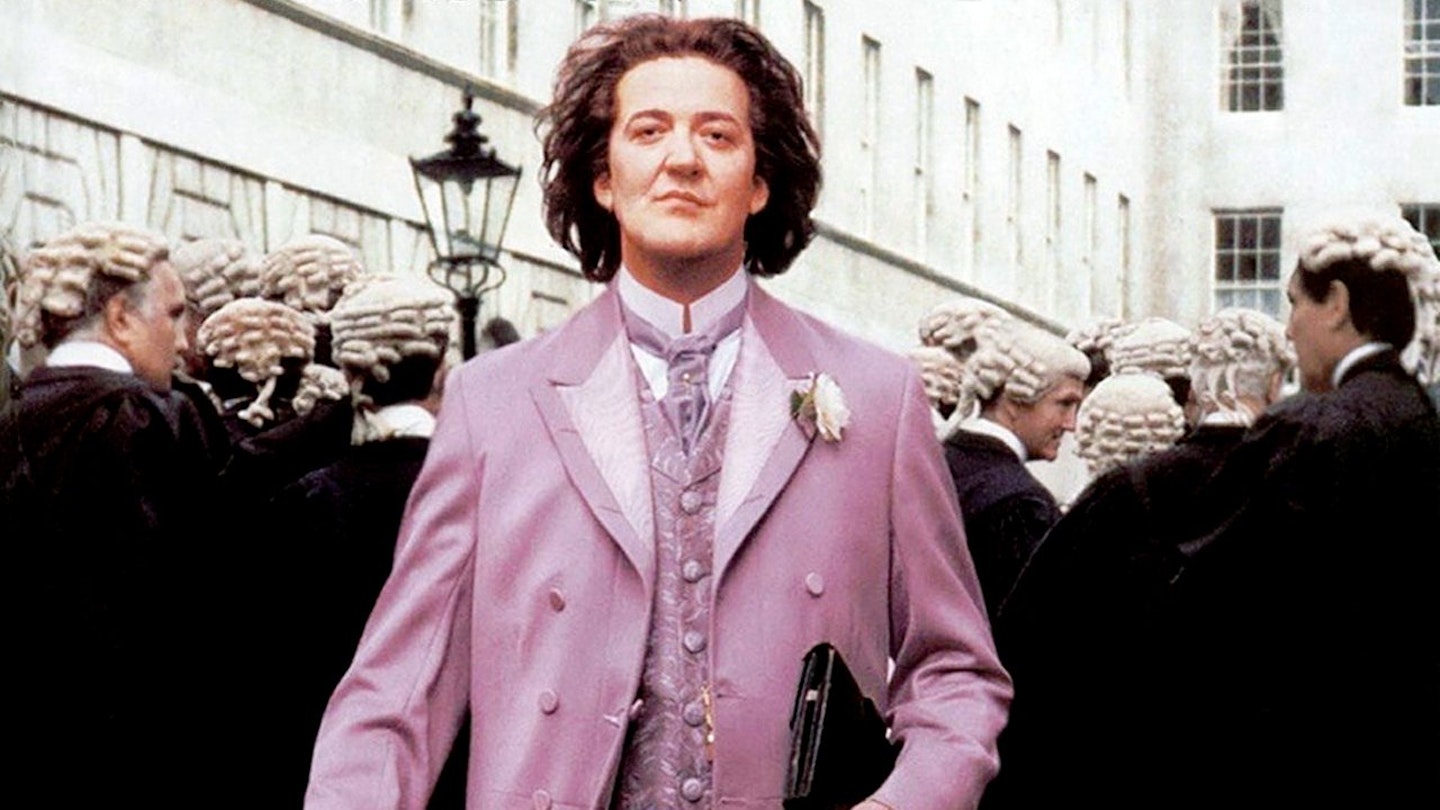As one wit playing another, Stephen Fry comes across surprisingly right, cutting a flamboyant but stressed figure as the great Oscar Wilde. He is impressive and moving in this account of Wilde's rise and ruin. However, whole chunks of Gilbert's handsome, painfully tasteful erotic biopic are the one thing Oscar wasn't - boring.
Oscar is shown as an outsider in London society from the start. Still, his mother (Vanessa Redgrave in hideous red wig) has a future mapped out for him that includes marriage and a career in parliament. Oscar is ready to oblige in the first department by wedding the admiring and comforting Constance (Ehle), a sympathetic audience for his unconventional ideas. Together they swish around in artistic wardrobes, produce an heir and a spare, and sparkle among the glitterati.
Ere long, though, the emphasis switches to Wilde's homosexuality. Once Oscar sets eyes on the beauteous and dissolute Lord Alfred Douglas, the infamous "Bosie" (Law, so petulant a prat you despair immediately for our gentle hero), he never seems to do any work as his beloved introduces him to the Victorian equivalent of kerb-crawling, male brothels and an endless round of soirees at which effete nude youths pose and pout.
The courtroom drama phase, in which Oscar's hassles with the beastly Marquis of Queensbury (Tom Wilkinson as Bosie's pater) lead to exposure, scandal, Reading gaol and impoverished exile, is more compelling but not the dramatic equal of 1960's The Trials Of Oscar Wilde with Peter Finch. Apart from a sprinkling of Wilde's legendary bons mots and a few fleeting visits to theatres where audiences cheer Lady Windemere's Fan, there is disappointingly little here to suggest the complexity of his mind, the range of his writing or, crucially, the importance of being Oscar.
